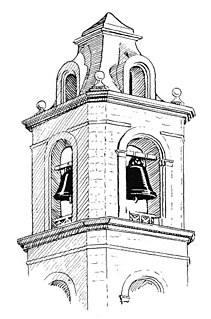
Christ, used by Christians as both a name and a title, is synonymous with Jesus. It is also used as a title, in the reciprocal use "Christ Jesus", meaning "the Messiah Jesus", and independently as "the Christ". The Pauline epistles, the earliest texts of the New Testament, often refer to Jesus as "Christ Jesus" or "Christ".

A soldier is a person who is a member of an army. A soldier can be a conscripted or volunteer enlisted person, a non-commissioned officer, or an officer.

A double entendre is a figure of speech or a particular way of wording that is devised to have a double meaning, of which one is typically obvious, whereas the other often conveys a message that would be too socially awkward, sexually suggestive, or offensive to state directly.

Pussy is a used as a noun, an adjective, and—in rare instances—a verb in the English language. It has several meanings, as slang, as euphemism, and as vulgarity. The most common as a noun, it means "cat", as well as "coward or weakling". In slang usage, it can mean "the human vulva or vagina" and less commonly, as a form of synecdoche, meaning "sexual intercourse with a woman". Because of its multiple senses including both innocent and vulgar connotations, pussy is often the subject of double entendre.
A virtuoso is an individual who possesses outstanding talent and technical ability in a particular art or field such as fine arts, music, singing, playing a musical instrument, or composition.
A gimmick is a novel device or idea designed primarily to attract attention or increase appeal, often with little intrinsic value. When applied to retail marketing, it is a unique or quirky feature designed to make a product or service "stand out" from its competitors. Product gimmicks are sometimes considered mere novelties, and tangential to the product's functioning. Gimmicks are occasionally viewed negatively, but some seemingly trivial gimmicks of the past have evolved into useful, permanent features. The term is also sometimes used to describe unusual features or playstyles in video games, usually if they are unnecessary or obnoxious.
Deaf-mute is a term which was used historically to identify a person who was either deaf and used sign language or both deaf and could not speak. The term continues to be used to refer to deaf people who cannot speak an oral language or have some degree of speaking ability, but choose not to speak because of the negative or unwanted attention atypical voices sometimes attract. Such people communicate using sign language. Some consider it to be a derogatory term if used outside its historical context; the preferred term today is simply "deaf".
Dude is English slang for an individual, typically male. From the 1870s to the 1960s, dude primarily meant a person who dressed in an extremely fashionable manner or a conspicuous citified person who was visiting a rural location, a "city slicker". In the 1960s, dude evolved to mean any male person, a meaning that slipped into mainstream American slang in the 1970s. Current slang retains at least some use of all three of these common meanings.

The belfry is a structure enclosing bells for ringing as part of a building, usually as part of a bell tower or steeple. It can also refer to the entire tower or building, particularly in continental Europe for such a tower attached to a city hall or other civic building.
Folk etymology is a change in a word or phrase resulting from the replacement of an unfamiliar form by a more familiar one. The form or the meaning of an archaic, foreign, or otherwise unfamiliar word is reinterpreted as resembling more familiar words or morphemes.

A humbug is a person or object that behaves in a deceptive or dishonest way, often as a hoax or in jest. The term was first described in 1751 as student slang, and recorded in 1840 as a "nautical phrase". It is now also often used as an exclamation to describe something as hypocritical nonsense or gibberish.

Despite the various English dialects spoken from country to country and within different regions of the same country, there are only slight regional variations in English orthography, the two most notable variations being British and American spelling. Many of the differences between American and British English date back to a time before spelling standards were developed. For instance, some spellings seen as "American" today were once commonly used in Britain, and some spellings seen as "British" were once commonly used in the United States.
Irregardless is a word sometimes used in place of regardless or irrespective, which has caused controversy since the early twentieth century, though the word appeared in print as early as 1795.
Dominus is the Latin word for master or owner. Dominus saw use as a Roman imperial title. It was also the Latin title of the feudal, superior and mesne, lords, and an ecclesiastical and academic title. The ecclesiastical title was rendered through the French sieure in English as sir, making it a common prefix for parsons before the Reformation, as in Sir Hugh Evans in Shakespeare's Merry Wives of Windsor. Its shortened form Dom remains used as a prefix of honor for ecclesiastics of the Catholic Church, and especially for members of the benedictine and other religious orders. The title was formerly also used as is, Dominus, for a Bachelor of Arts.

People from the United States of America are known as and refer to themselves as Americans. Different languages use different terms for citizens of the United States. All forms of English refer to US citizen as American, a term deriving from the United States of America, the country's official name. In the English context, it came to refer to inhabitants of British America, and then the United States. However, there is some linguistic ambiguity over this use due to the other senses of the word American, which can also refer to people from the Americas in general. Other languages, including French, Japanese, and Russian, use cognates of American to refer to people from the United States, while others, particularly Spanish and Portuguese, primarily use terms derived from United States. There are various other local and colloquial names for Americans. The name America came from the Italian navigator Amerigo Vespucci.

A pistol is a handgun, more specifically one with the chamber integral to its gun barrel, though in common usage the two terms are often used interchangeably. The English word was introduced in ca. 1570 – when early handguns were produced in Europe and is derived from the Middle French pistolet, meaning a small gun or knife. In colloquial usage, the word "pistol" is often used to describe any type of handgun, inclusive of revolvers and the pocket-sized derringers.

An idiom is a common word or phrase with a figurative, non-literal meaning that is understood culturally and differs from what its composite words' denotations would suggest; i.e. the words together have a meaning that is different from the dictionary definitions of the individual words. By another definition, an idiom is a speech form or an expression of a given language that is peculiar to itself grammatically or cannot be understood from the individual meanings of its elements. For example, an English speaker would understand the phrase "kick the bucket" to mean "to die" – and also to actually kick a bucket. Furthermore, they would understand when each meaning is being used in context.

In music, number refers to an individual song, dance, or instrumental piece which is part of a larger work of musical theatre, opera, or oratorio. It can also refer either to an individual song in a published collection or an individual song or dance in a performance of several unrelated musical pieces as in concerts and revues. Both meanings of the term have been used in American English since the second half of the 19th century.












